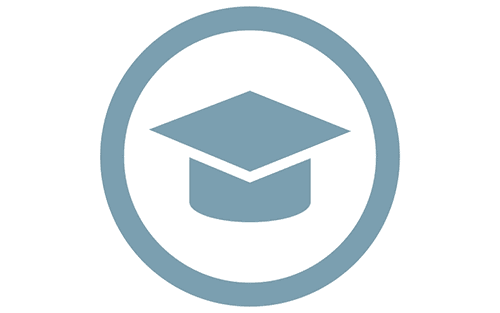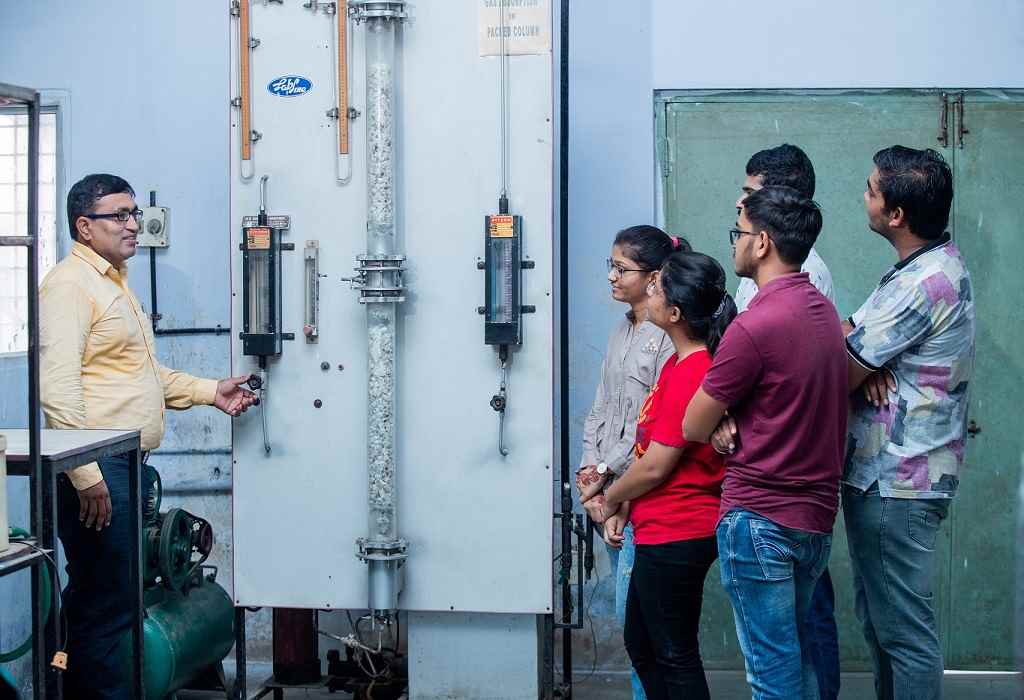

The Department of Chemical Engineering was established in the year 1996 and provides an outstanding academic environment complemented by excellence in teaching. The Department offers 4 years undergraduate course (B.E.).
To provide technical education of highest quality for creating highly competent Chemical Engineers. To also inculcate moral values among Chemical Engineering students and make ethically strong professionals in Chemical Engineering field. To develop various entrepreneurial abilities among students for making them future entrepreneurs who will accept new challenges coming their way in this field.
Our efforts are to develop quality technical manpower through interactive communication, short term training program,seminars, group discussions etc.
Our strength is to provide vigorous class room instructions and laboratory experiences using modern equipment and computer based broad insight to develop core competences.
Our endeavor is to impart in depth knowledge by initiating collaborative real life project with nearby industries which in turn increase the capabilities of to meet global challenges.
1. Engineering Knowledge: Apply the knowledge of mathematics, science, engineering fundamentals, and an engineering specialization to the solution of complex engineering problems.
2. Problem Analysis: Identify, formulate, research literature, and analyze complex engineering problems reaching substantiated conclusions using first principles of mathematics, natural sciences, and engineering sciences.
3. Design/development of Solutions: Design solutions for complex engineering problems and design system components or processes that meet t h e specified needs with appropriate consideration for the public health and safety, and the cultural, societal, and environmental considerations.
4. Conduct Investigations of Complex Problems: Use research-based knowledge and research methods including design of experiments, analysis and interpretation of data, and synthesis of the information to provide valid conclusions.
5. Modern Tool usage: Create, select, and apply appropriate techniques, resources, and modern engineering and IT tools including prediction and modelling to complex engineering activities with an understanding of the limitations.
6. The Engineer and Society: Apply reasoning informed by the contextual knowledge to assess societal, health, safety, legal and cultural issues and the consequent responsibilities relevant to the professional engineering practice.
7. Environment and Sustainability: Understand the impact of the professional engineering solutions in societal and environmental contexts, and demonstrate the knowledge of, and need for sustainable development.
8. Ethics: Apply ethical principles and commit to professional ethics and responsibilities and norms of the engineering practice.
9. Individual and Team Work: Function effectively as an individual, and as a member or leader in diverse teams, and in multidisciplinary settings.
10. Communication: Communicate effectively on complex engineering activities with the engineering community and with society at large, such as, being able to comprehend and write effective reports and design documentation, make effective presentations, and give and receive clear instructions.
11. Project Management and Finance: Demonstrate knowledge and understanding of the engineering and management principles and apply these to one’s own work, as a member and leader in a team, to manage projects and in multidisciplinary environments.
12. Life-long Learning: Recognize the need for, and have the preparation and ability to engage in independent and life-long learning in the broadest context of technological change.